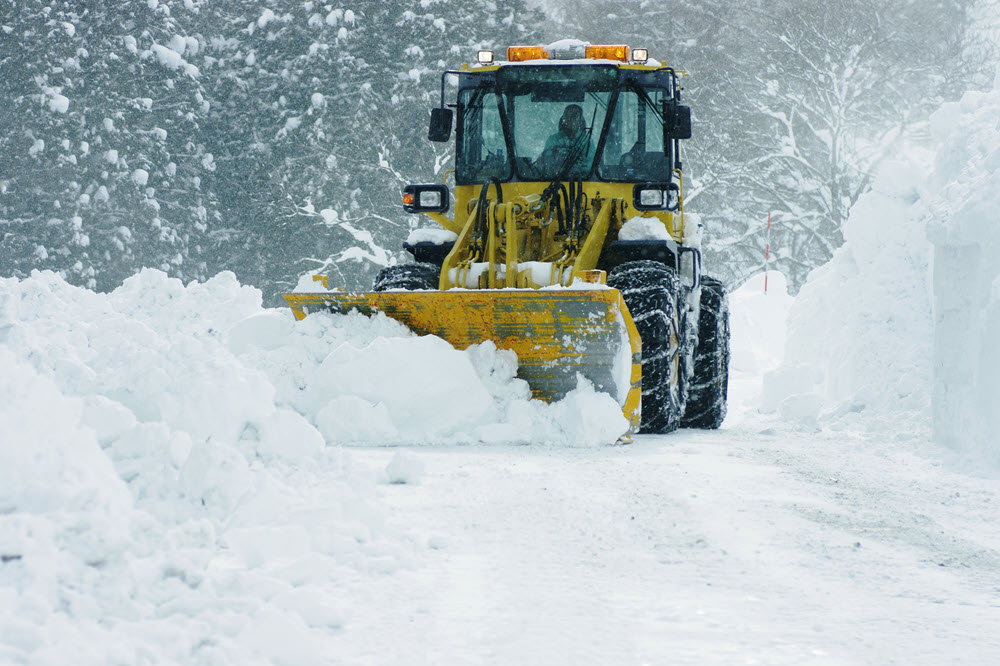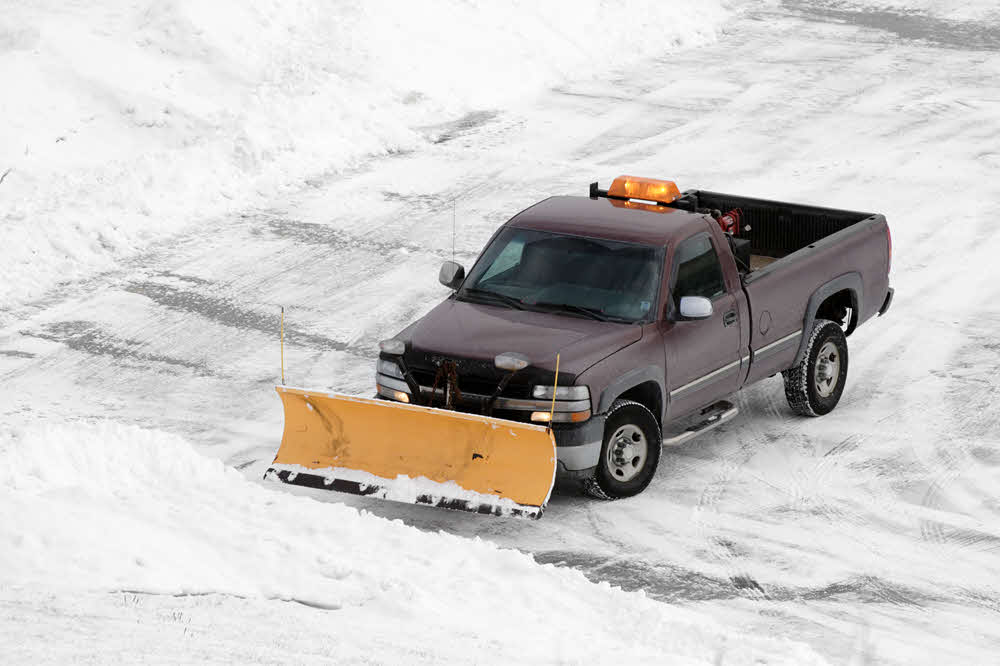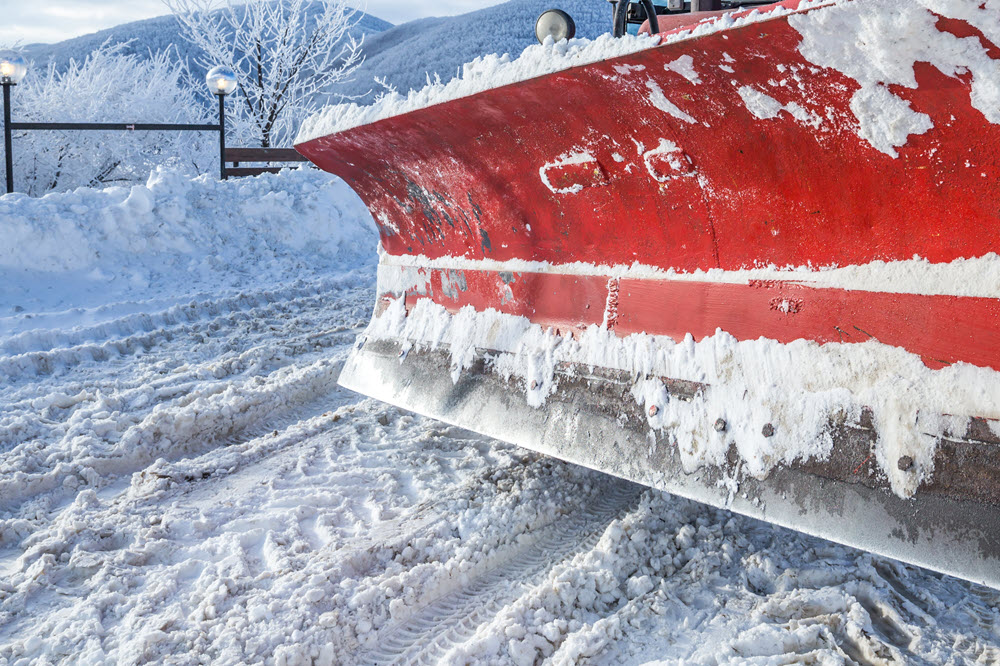Snow Plowing Companyin Sterling Heights MI
Commercial Plowing ServicesYou Can Rely On All Winter Long
We Are Locally Owned & Operated For Over 37 Years
Contact Us Today!
We Serve Businesses In And Around The Following Cities:
About Snow Plowing Company
The Essentials of Choosing a Snow Plowing Company in Sterling Heights
In the frost-covered city of Sterling Heights, winter ushers in not just the holiday season but also the challenging task of managing stubborn snow on commercial properties. With the average snowfall recorded at a staggering 32 inches annually, Sterling Heights often faces the daunting prospect of heavy snowfalls. For businesses, this means the urgent need for a professional snow plowing company to keep their commercial properties snow-free and prevent any accidental slips or falls.
It is here where a professional snow plowing company like D&J Contracting steps in, leveraging their expertise to provide Sterling Heights businesses with swift and efficient snow plowing services. The question remains, though, what should businesses look for in a commercial snow plowing company, and how does the process work? Read on for the answers.
What Should a Quality Commercial Snow Plowing Company Offer?
Engaging the services of a snow plowing company near you presents a multitude of benefits. Firstly, a localized company like D&J Contracting is familiar with the Sterling Heights climate, leading to quicker response times and more efficient services. They are equipped to handle the harsh Michigan winters and can ensure that your commercial spaces are navigable and safe.
Moreover, while many might view snow plowing as a straightforward task, it requires a particular skill set to execute it without causing property damage or safety hazards. Hence, a professional snow plowing company with substantial experience is less likely to cause any unexpected problems compared to amateur or DIY attempts.
The Process Behind Effective Snow Plowing
Effective snow plowing involves more than merely pushing the snow off your property. A professional snow plowing company adheres to a systematic approach to handle the task efficiently. This process typically includes understanding the property’s layout, identifying potential problem areas, developing a detailed snow removal plan, and executing it using suitable equipment.
At D&J Contracting, the process begins with a comprehensive property evaluation. This helps in identifying high-risk areas, mapping out the property, and strategizing the most efficient way to clear the snow. They then use high-tech snow plows and other advanced equipment to execute their plan effectively, minimizing disruption to your regular commercial activities while ensuring optimal safety for your employees, customers, and property.
Benefits of Hiring a Snow Plowing Company for Commercial Properties
Hiring a snow plowing company for your commercial property brings numerous benefits. These include saving time, reducing the risk of personal injury, preventing property damages, and being able to focus on your primary business responsibilities without worrying about snow management.
Local businesses in Sterling Heights, for example, a retail store, could experience a spike in customer traffic during the holiday season. By employing the services of a commercial snow plowing company, they can ensure their premises are safe and accessible, contributing to a better customer experience and potentially increased sales.
Another example would be a corporate office building where employee safety is a primary concern. Utilizing a professional snow plowing service will ensure the thorough removal of snow and ice, thereby minimizing the risk of injury and resultant workplace disruption.
Employing Real-World Applications
Real-world applications of snow plowing services are abundant in Sterling Heights owing to its harsh winters. From car dealerships needing clear lots to display their inventory, to nursing homes requiring clean and safe passages for their residents, the demand for professional snow plowing services is extensive.
Take, for instance, the case of a leading Sterling Heights car dealership. During a particularly heavy snowfall, their vast lot was buried under deep snow, making it impossible to view or access their cars. D&J Contracting was called in and, utilizing their state-of-the-art snow plowing fleet, they had the entire area cleared and ready for customers within a few hours, ensuring business continuity for the dealership.
Clearly, the need and the benefits of hiring a snow plowing company near you are manifold. Whether it’s a small retail outlet or a massive commercial complex, the right snow plowing service can save you time, reduce potential hazards, and ensure smooth business operations even in the thick of winter.
To finish, it’s clear that the complexities and potential dangers associated with snow management in Sterling Heights make it essential to consider a professional snow plowing company like D&J Contracting for your commercial property’s safety needs. With their experience, expertise, and unwavering commitment to customer satisfaction, they stand ready to help you face and overcome any winter challenges coming your way.
Snow Plowing Company Gallery


Call Us Today to receive your Free Quote for
Snow Plowing Company in Sterling Heights
Serving: Sterling Heights, Michigan

About Sterling Heights, Michigan
As a result of the War of 1812 and the 1817 Treaty of Fort Meigs, the area of the Michigan Territory which now makes up Sterling Heights was first surveyed by Deputy Surveyor Joseph Wampler; his survey was approved on February 20, 1818. Wampler had been one of two deputy surveyors of Perrysburg, Ohio, in 1816.
Originally created as part of Shelby Township in April 1827, it was broken off as Jefferson Township in March 1835. In March 1838, it was renamed Sterling Township.
Until the 1950s, Sterling Township was an agricultural area, largely devoted to growing rhubarb and other crops sold in Detroit. Road improvements led to decreased commute times and lower costs for the delivery of goods and services to and from businesses. The population increased when suburban homes were built for the workers in metropolitan Detroit’s booming automobile industry. When Sterling Township was incorporated as a city in 1968, “Heights” was added to the name to satisfy a state law that prevents incorporated municipalities from having the same name, as there was already a small village named Sterling in Arenac County.
Gerald Donovan became the first mayor of the city and F. James Dunlop became the first mayor pro-tempore. In the 1960s and 1970s, many residents came to live in Sterling Heights to work in automobile plants operated by Chrysler and Ford. Lakeside Mall opened in Sterling Heights in 1976.
The city is home to many groups of immigrants. It has received many people of eastern European origins, including ethnic Albanians, Bosnians, Croatians, Macedonians, Montenegrins, Poles, Serbians and Slovenians. After the 2003 U.S.-Iraqi War, millions of Iraqi citizens were displaced, particularly Iraqi Christians (Chaldean Catholics and Assyrians). Of these, 30,000-50,000 resettled in Sterling Heights, giving parts of the city the nickname “Little Nineveh”, especially around 15 Mile Road and Ryan.
Sterling Heights is a second-ring suburb, 14 to 20 miles (23 to 32 km) north of downtown Detroit. The city’s southern border is 6 miles (10 km) from Detroit’s northern border. The shape of the city is six miles long and miles wide. It is bordered to the south by the city of Warren, at its southwest corner by Madison Heights, to the west by Troy, to the north by Utica and Shelby Township, at its northeast corner by Macomb Township, to the east by Clinton Township, and to the southeast by Fraser.
According to the U.S. Census Bureau, Sterling Heights has a total area of 36.72 square miles (95.10 km), of which 36.45 square miles (94.41 km) are land and 0.27 square miles (0.70 km), or 0.74%, are water. The Clinton River crosses the northeast part of the city, flowing east to Lake St. Clair east of Mount Clemens.
Sterling Heights features a humid continental climate (Köppen: Dfa). Summers are somewhat hot with temperatures exceeding 90 °F (32 °C) on average 8.6 days. Winters are cold, with temperatures not rising above freezing on 39.1 days annually, while dropping to or below 0 °F (−18 °C) on average 1.2 days a year.
Sterling Heights sits on two main thoroughfares:
 M-53 commonly called Van Dyke Avenue or the Van Dyke Freeway (they split in the city, however, and rejoin to its north), which leads north into The Thumb of Michigan.
M-53 commonly called Van Dyke Avenue or the Van Dyke Freeway (they split in the city, however, and rejoin to its north), which leads north into The Thumb of Michigan. M-59, commonly called Hall Road once the freeway ends—which is the east–west connector from just north of Mount Clemens, through Utica as a surface road, and then becomes a limited access freeway to Pontiac, being the main northern connector between Macomb County and Oakland County. In Sterling Heights, large areas are devoted to retail and commercial development (e.g., Lakeside Mall).
M-59, commonly called Hall Road once the freeway ends—which is the east–west connector from just north of Mount Clemens, through Utica as a surface road, and then becomes a limited access freeway to Pontiac, being the main northern connector between Macomb County and Oakland County. In Sterling Heights, large areas are devoted to retail and commercial development (e.g., Lakeside Mall).
- Mound Road is an important north–south artery that runs continuously through the city. Overall, the road starts south in Hamtramck and runs up to 32 Mile Road in Romeo. The road ends briefly at River Bends Park in Shelby Township (becoming Auburn Road), and continues just north of 22 Mile Road.
- East-west travel is mainly on the “mile roads,” beginning at 14 Mile Road through 20 Mile Road (M-59). 16 Mile Road, also known as Metro Parkway, is another major “mile road”. See Roads and freeways in metropolitan Detroit.
- Utica Road is an important diagonal connector that crisscrosses the city from southeast to northwest, going through the intersection of Dodge Park Road (across from the Sterling Heights city hall) via the first roundabout in Macomb County.
- Dequindre Road is the border between the city of Sterling Heights and the city of Troy. It is also the border between the counties of Macomb and Oakland.
- Hayes Road is the divider between Clinton Township (Between Utica Road and South of M59) and Fraser (Between Masonic and Moravian).
| Census | Pop. | Note | %± |
|---|---|---|---|
| 1940 | 3,648 | — | |
| 1950 | 6,509 | 78.4% | |
| 1960 | 14,622 | 124.6% | |
| 1970 | 61,365 | 319.7% | |
| 1980 | 108,999 | 77.6% | |
| 1990 | 117,810 | 8.1% | |
| 2000 | 124,471 | 5.7% | |
| 2010 | 129,699 | 4.2% | |
| 2020 | 134,346 | 3.6% | |
| U.S. Decennial Census 2018 Estimate |
|||
| Race / Ethnicity (NH = Non-Hispanic) | Pop 2000 | Pop 2010 | Pop 2020 | % 2000 | % 2010 | % 2020 |
|---|---|---|---|---|---|---|
| White alone (NH) | 111,743 | 108,750 | 106,149 | 89.77% | 83.85% | 79.01% |
| Black or African American alone (NH) | 1,602 | 6,638 | 8,709 | 1.29% | 5.12% | 6.48% |
| Native American or Alaska Native alone (NH) | 239 | 246 | 200 | 0.19% | 0.19% | 0.15% |
| Asian alone (NH) | 6,100 | 8,713 | 10,935 | 4.90% | 6.72% | 8.14% |
| Pacific Islander alone (NH) | 35 | 16 | 13 | 0.03% | 0.01% | 0.01% |
| Other race alone (NH) | 122 | 158 | 337 | 0.10% | 0.12% | 0.25% |
| Mixed race or Multiracial (NH) | 2,965 | 2,655 | 4,728 | 2.38% | 2.05% | 3.52% |
| Hispanic or Latino (any race) | 1,665 | 2,523 | 3,275 | 1.34% | 1.95% | 2.44% |
| Total | 124,471 | 129,699 | 134,346 | 100.00% | 100.00% | 100.00% |
As of the census of 2010, there were 129,699 people, 49,451 households, and 34,515 families living in the city. The population density was 3,552.4 inhabitants per square mile (1,371.6/km). There were 52,190 housing units at an average density of 1,429.5 per square mile (551.9/km). The racial makeup of the city was 85.1% White, 5.2% African American, 0.2% Native American, 6.7% Asian, 0.5% from other races, and 2.2% from two or more races; 1.9% of the population were Hispanic or Latino of any race were.
There were 49,451 households, of which 31.0% had children under the age of 18 living with them, 55.0% were married couples living together, 10.5% had a female householder with no husband present, 4.3% had a male householder with no wife present, and 30.2% were non-families. 26.5% of all households were made up of individuals, and 10.7% had someone living alone who was 65 years of age or older. The average household size was 2.61 and the average family size was 3.20.
The median age in the city was 40.4 years. 21.7% of residents were under the age of 18; 8.8% were between the ages of 18 and 24; 25.8% were from 25 to 44; 28.6% were from 45 to 64; and 15.2% were 65 years of age or older. The gender makeup of the city was 48.5% male and 51.5% female.
As of the census of 2000, there were 124,471 people, 46,319 households, and 33,395 families living in the city. The population density was 3,397.0 inhabitants per square mile (1,311.6/km). There were 47,547 housing units at an average density of 1,297.6 per square mile (501.0/km). The racial makeup of the city was 90.70% White, 1.30% African American, 0.21% Native American, 4.92% Asian, 0.04% Pacific Islander, 0.34% from other races, and 2.50% from two or more races; 1.34% of the population were Hispanic or Latino of any race.
Ancestries: Polish (19.0%), German (14.4%), Italian (12.5%), Macedonian (5.7%), English (5%), Chaldo-Assyrians (20.7%), American/US (4%) ,and Irish (4%).
In 2000, there were more people in Sterling Heights born in Iraq than any other foreign country. In that year there were 5,059 people in Sterling Heights born in Iraq. The next three largest nations of foreign birth were North Macedonia at 1,723, Italy at 1,442 and Poland at 1,427.
There were 46,319 households, out of which 32.9% had children under the age of 18 living with them, 60.4% were married couples living together, 8.5% had a female householder with no husband present, and 27.9% were non-families. 24.1% of all households were made up of individuals, and 8.5% had someone living alone who was 65 years of age or older. The average household size was 2.66 and the average family size was 3.21.
In the city, the population was spread out, with 24.1% under the age of 18, 8.5% from 18 to 24, 30.4% from 25 to 44, 25.2% from 45 to 64, and 11.8% who were 65 years of age or older. The median age was 37 years. For every 100 females, there were 96.0 males. For every 100 females age 18 and over, there were 92.6 males.
The median income for a household in the city was $60,494, and the median income for a family was $70,140. Males had a median income of $51,207 versus $31,489 for females. The per capita income for the city was $24,958. About 4.0% of families and 5.2% of the population were below the poverty line, including 6.6% of those under age 18 and 7.5% of those age 65 or over.
Sterling Heights is served by two public school districts: Utica Community Schools, which serves the northern half of the city, and Warren Consolidated Schools, which serves the southern half of the city. Utica operates two high schools in the city, Stevenson High School and Henry Ford II High School, while Warren Consolidated operates Sterling Heights High School. Additionally, Parkway Christian School, a private K-12 Christian school, is also located in the city.
Call Us Today to receive your Free Quote for
Snow Plowing Company in Sterling Heights
Related Services in Sterling Heights, Michigan
We Serve Businesses In The Following Zip Codes:
48007, 48015, 48021, 48026, 48035, 48036, 48038, 48042, 48043, 48044, 48045, 48046, 48047, 48048, 48050, 48051, 48066, 48071, 48080, 48081, 48082, 48083, 48084, 48085, 48088, 48089, 48090, 48091, 48092, 48093, 48098, 48099, 48225, 48230, 48236, 48310, 48311, 48312, 48313, 48314, 48315, 48316, 48317, 48318, 48397